THE ROAD NOT TAKEN
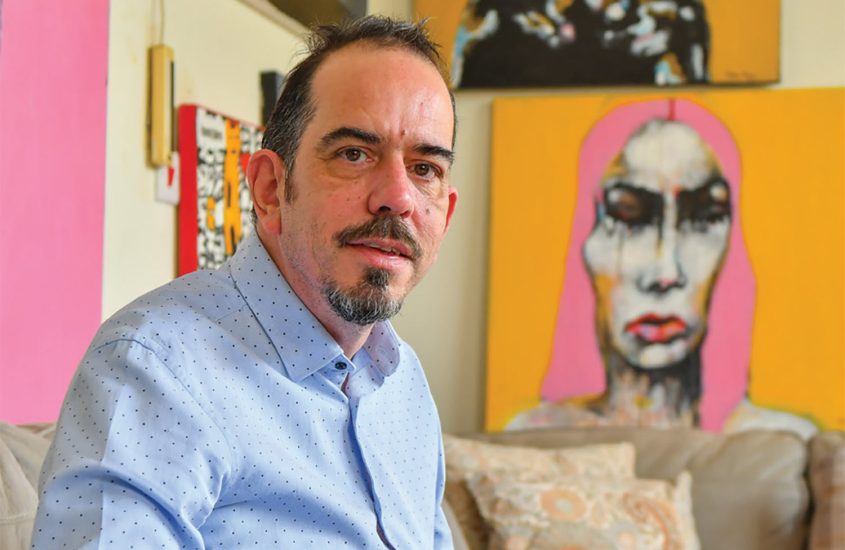
Local talent makes a mark.
Bahraini artist Eskander Dawani is climbing the ladder of success and slowly making it to the top tier of creative professionals in the Kingdom, as his work features for the third consecutive year at the 46th Bahrain Annual Fine Arts Exhibition, running till the end of June.
“It means a lot for me to be part of the exhibition. I feel very lucky. And people have started to notice my work and there’s a bit of a buzz, which is always nice. So yeah, it’s kind of exciting,” he says.
Harbouring quite an unusual style, Eskander’s paintings mainly depict female figures with amplified physical features and dark themes.
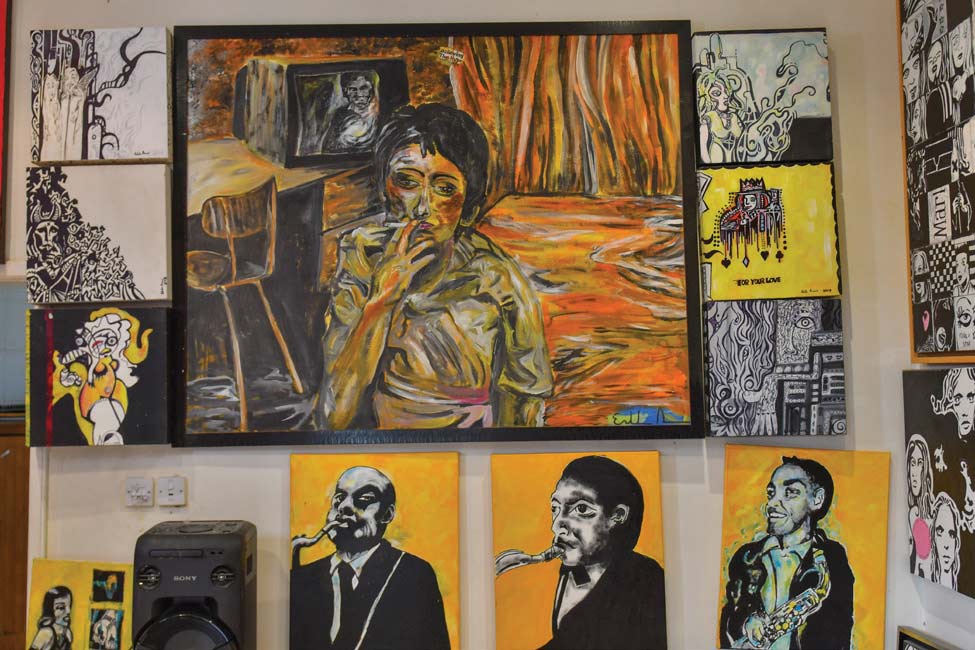
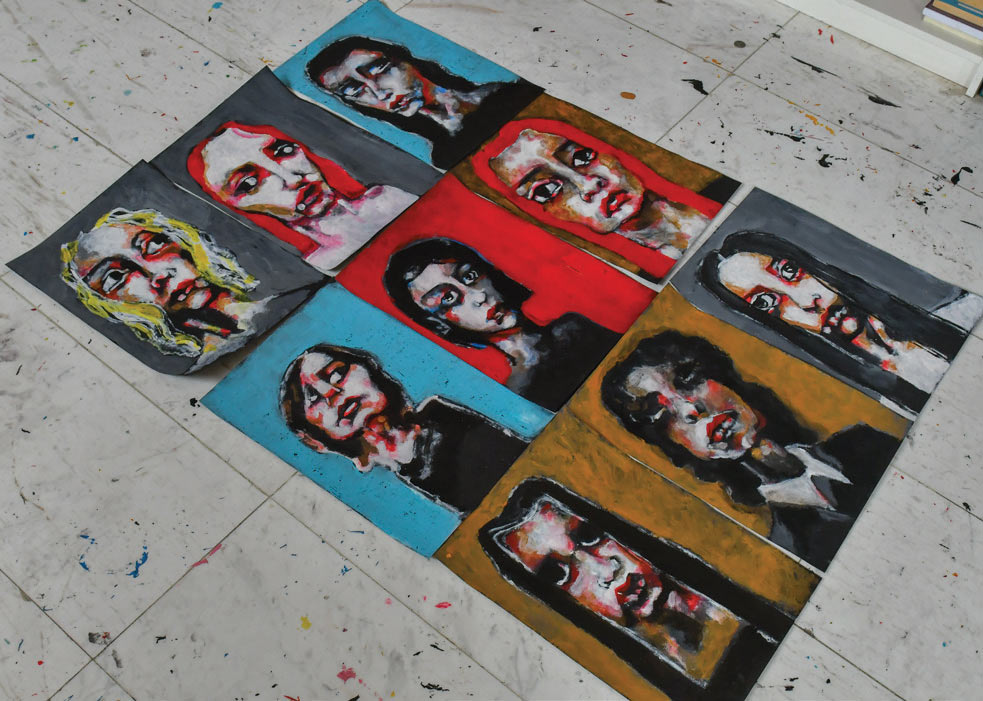
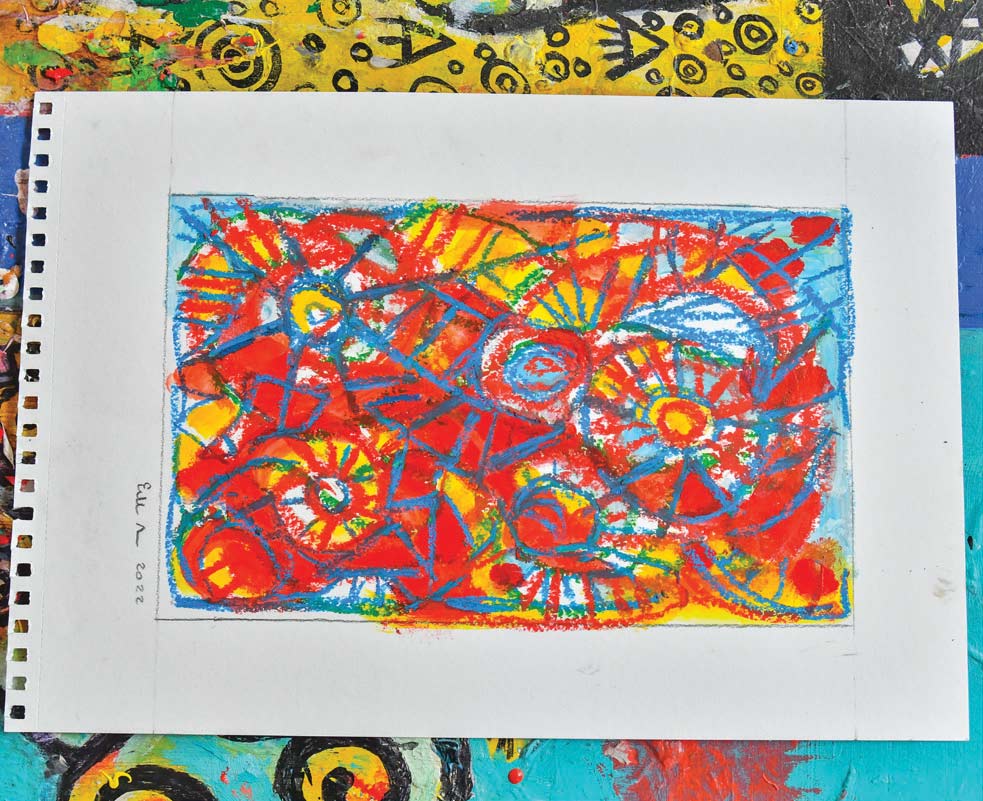
“I just love them, the expressions. They stare back at you, you know? They’re quite defined and they kind of jar you and make you a bit uncomfortable on purpose. With my work there’s a lot of terror and anger and these strong emotions. And my portraits usually have a flat background so you focus on the actual face as opposed to what’s going on behind,” he adds with the wall behind him covered in his paintings.
The half-English half-Bahraini artist started drawing from a young age. The earliest piece he remembers is a copper plate attached to cardboard that he etched into while in school at St. Christopher’s, creating an image of a: “kid covering his face and sitting on a barrel, with a dog next to him. I remember I was just messing about with this plate and a thing you poke with. I still have that piece. I guess I’ve always liked to be creative.”
The artist, who has worked with mediums across the range such as acrylic, oil pastels and pen and ink, cites Malcolm T. Liepke, Jean Michel-Basquiat, Andy Warhol, Francis Bacon, Pablo Picasso, Banksy, Cindy Sherman and Jack Vettriano as some of his sources of inspiration, the last of which is a Scottish artist who started his artistic career in Bahrain, where he had his first solo exhibition.
The artist is also a poet who has written several notebooks of poetry. He started in the early ‘90s while studying at the American College of London after picking up a book by singer and poet Leonard Cohen. “I bought a book from Tower Records in Piccadilly, London. It used to be my favourite shop. I’d spend hours there just like looking at all these albums. I saw this Leonard Cohen book and I bought it and I was immediately hooked. He’s just phenomenal,” he explains.
The painter recalls his mum, who was a great source of inspiration. She dreamt of becoming an actress and had just gotten accepted into the Royal Academy of Dramatic Arts in London but got married instead and came to Bahrain. “There was that regret with her that, you know, ‘What if I took the road not taken?’. She loved the theatre; I’d go with her. And I think she just wished that maybe she could’ve been an actress. She’s part of the reason I went into art and she was very supportive of me. She was always behind me the whole way,” he reflects. “Being from a business family it B was a bit daunting to take another route.”
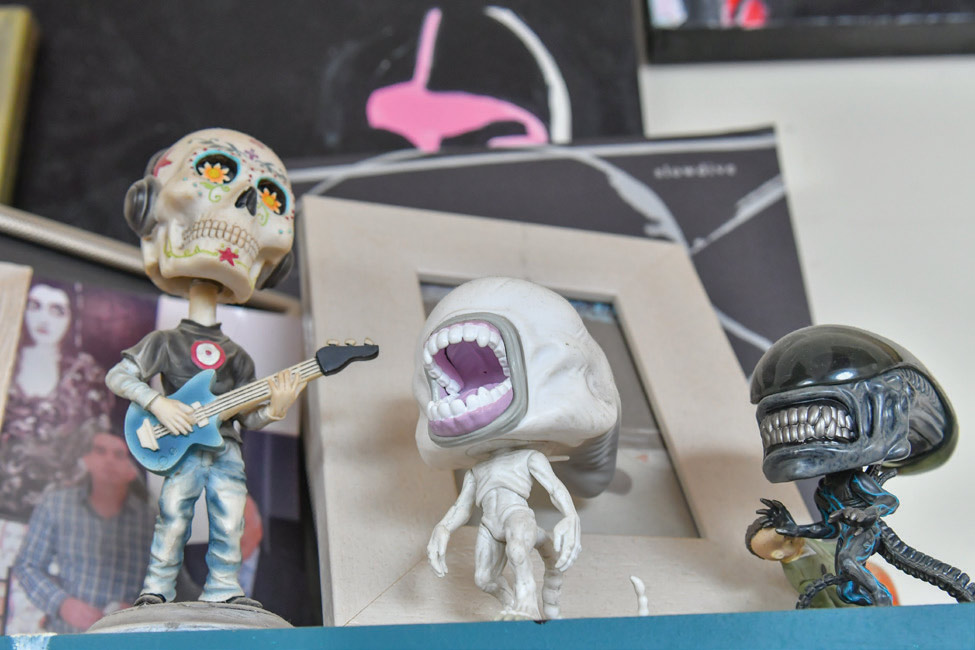

Eskander started concentrating more on his art two years ago, developing darker paintings and experimenting with abstract themes, instigated by the passing of his father and the onset of the pandemic.
“Grief… isn’t fun,” he says. “It hit me quite hard. I just immersed myself into my work to try and not think so much about everything. Sometimes when you’re not in a good place, you have to try and trick your brain into doing something positive.
“I mean, over the years you have to deal with stuff. Some traumatic stuff, relationships, just things going bad, so, for me, I work through that with my art.”
Eskander tries to create a piece or two every day and posts his work on Instagram, which he says keeps him grounded. “It’s like a diary, in some ways. And I try to create something different to stay fresh because us artists are always terrified that we’ve peaked already and there isn’t much else to learn. That’s why I write as well because I’m learning every day.”
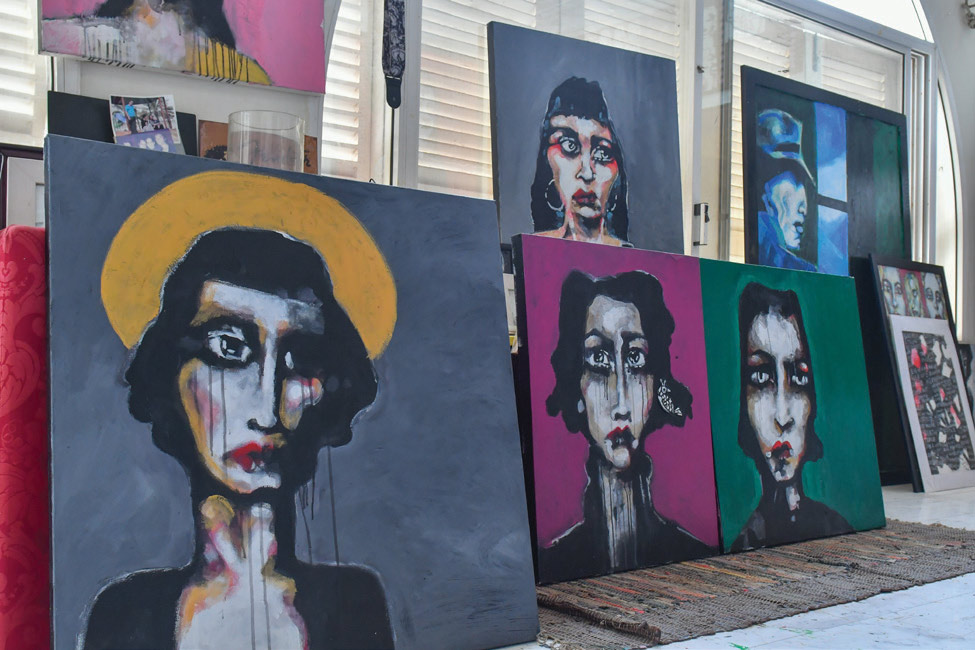
His original plan after art school was to go to Croatia to help refugees. However, he ended up coming back to Bahrain. He worked on and off in Al Jazeera Supermarket, owned by his family, and a few coffee shops, but is now committed to his artistic practice and being with his family.
“I’m kind of happy the way I got to where I am,” he says. “I learnt a lot of life lessons. I’ve got a family, kids, my place here, good friends. I’ve got all my necessities that I need. And I’m very happy.”
When asked what advice he would give to aspiring artists, he says: “Don’t worry about what people think. The important thing is just to be creative, not for anyone else but for yourself.
“The more you work at something, even if you’re taking reference, the more you work, the more you advance and get your own voice. So, sometimes you have to start at the bottom, maybe plagiarising in some sense, but as you move on, you create your own thing.”
Eskander is hoping to host another solo exhibition soon and is also working on a novella with a fellow artist Marc Zakaria that he calls his ‘own Catcher in the Rye’. ✤


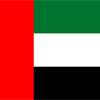




















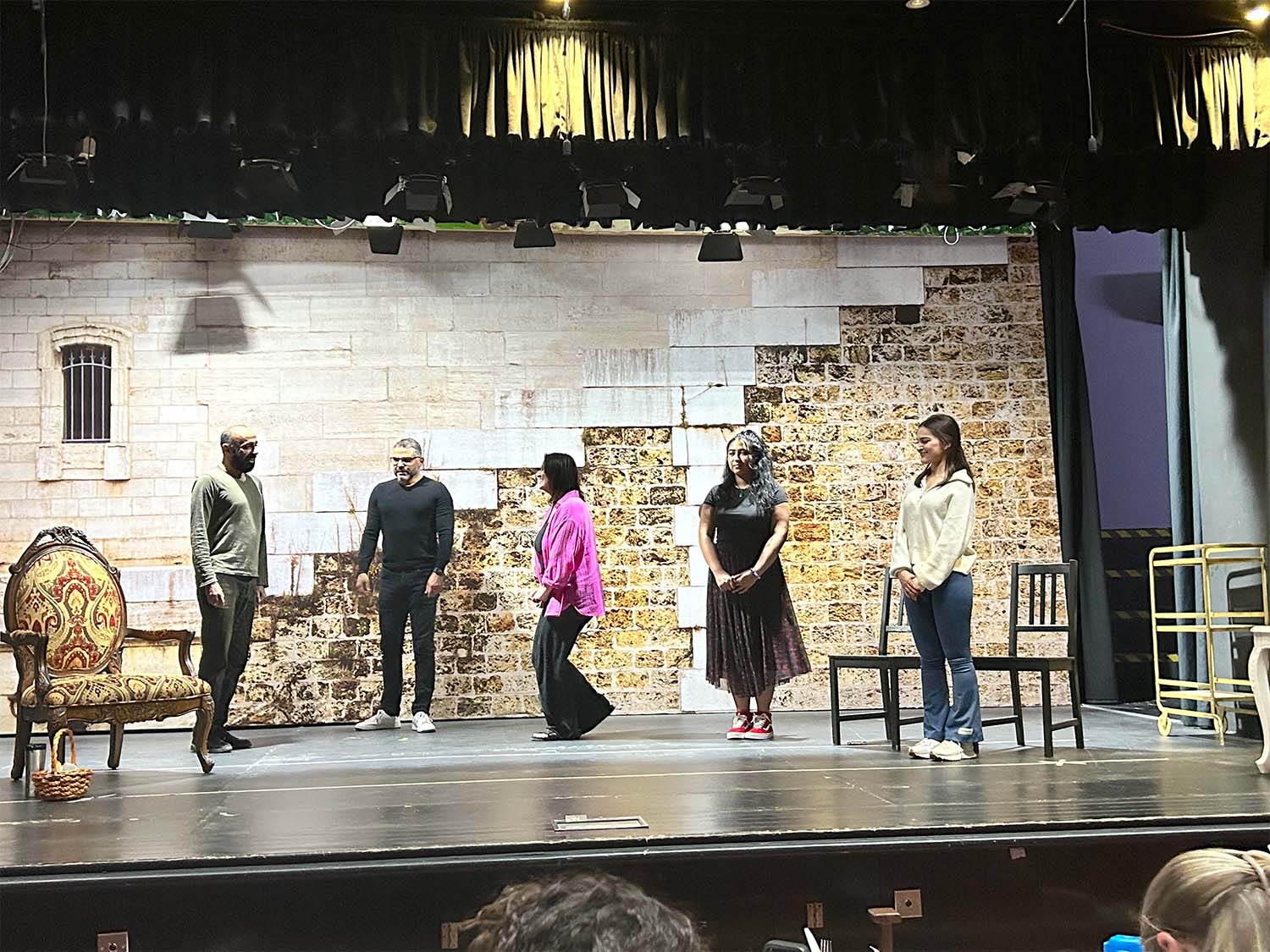
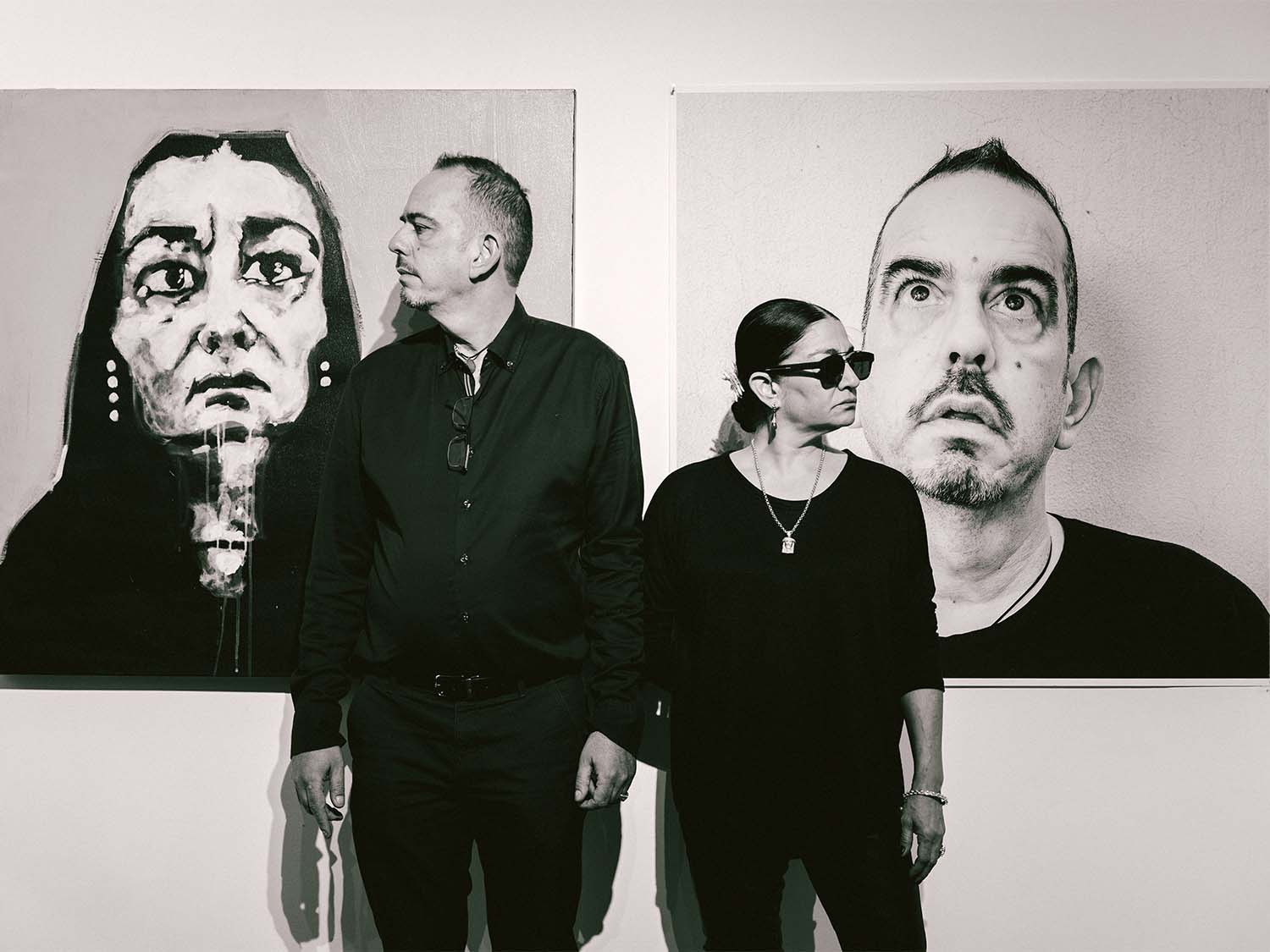





Comments are closed.